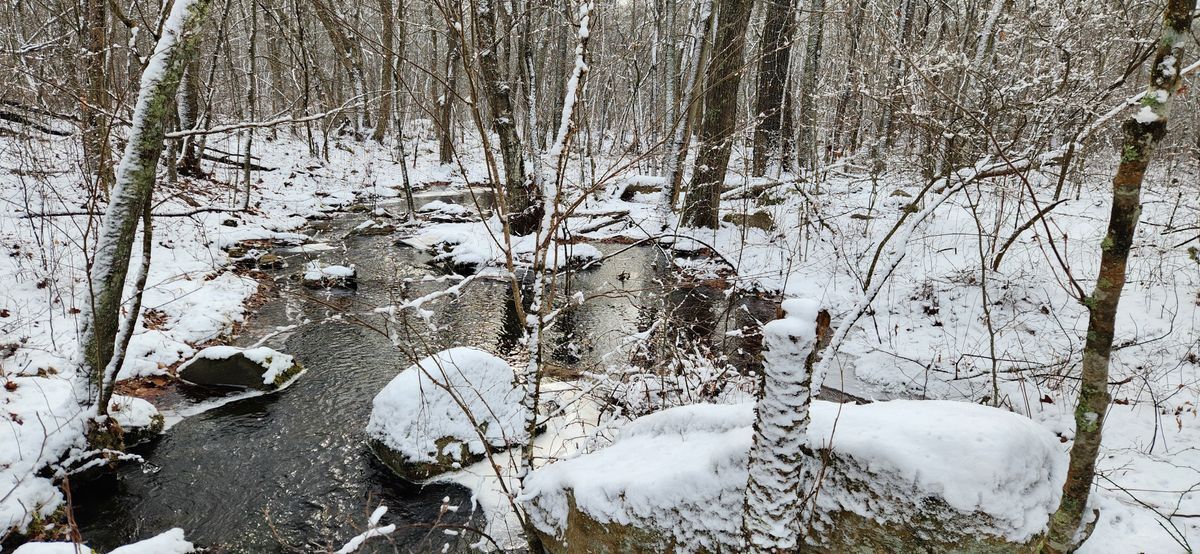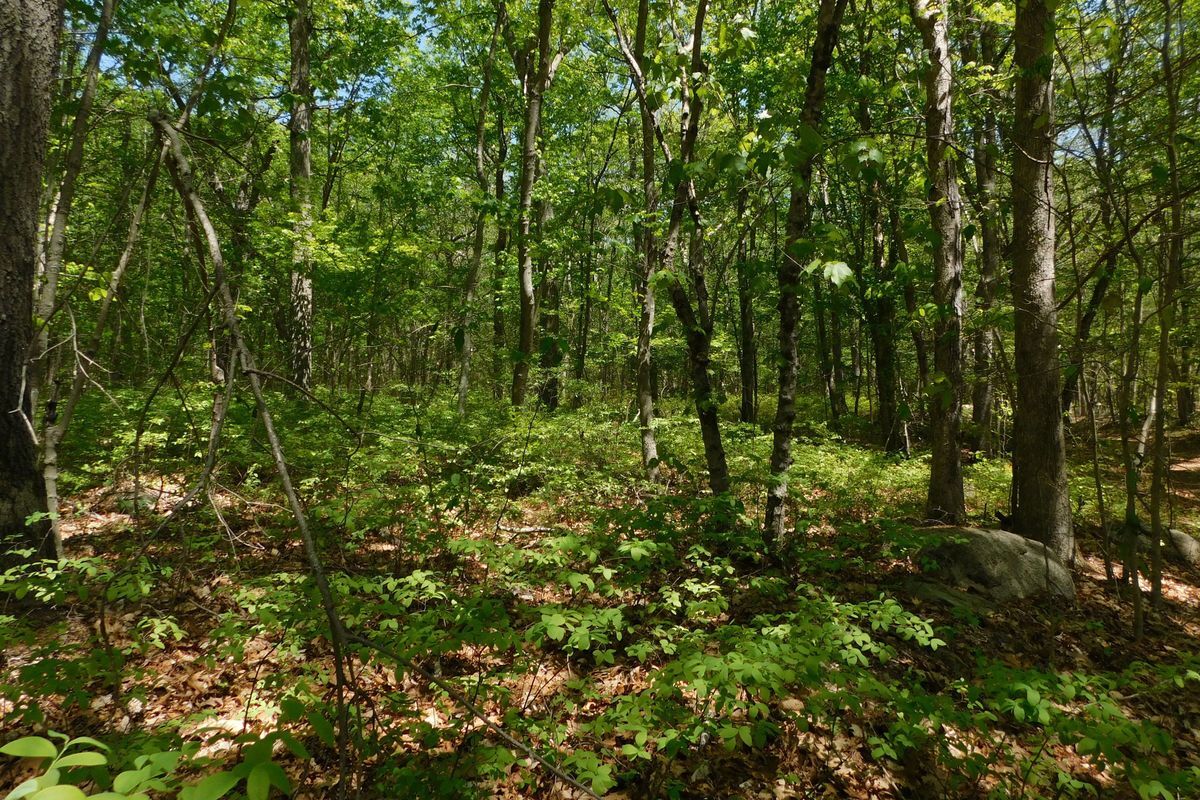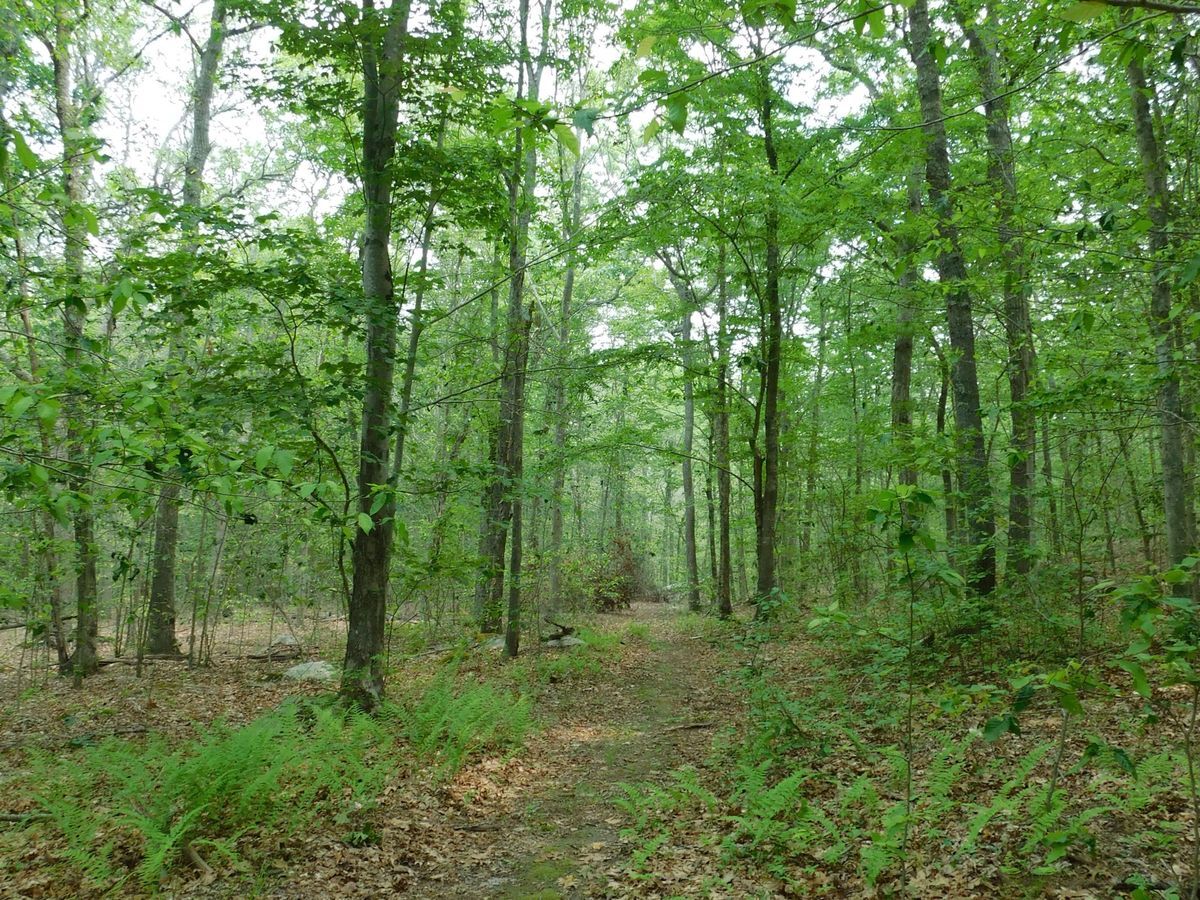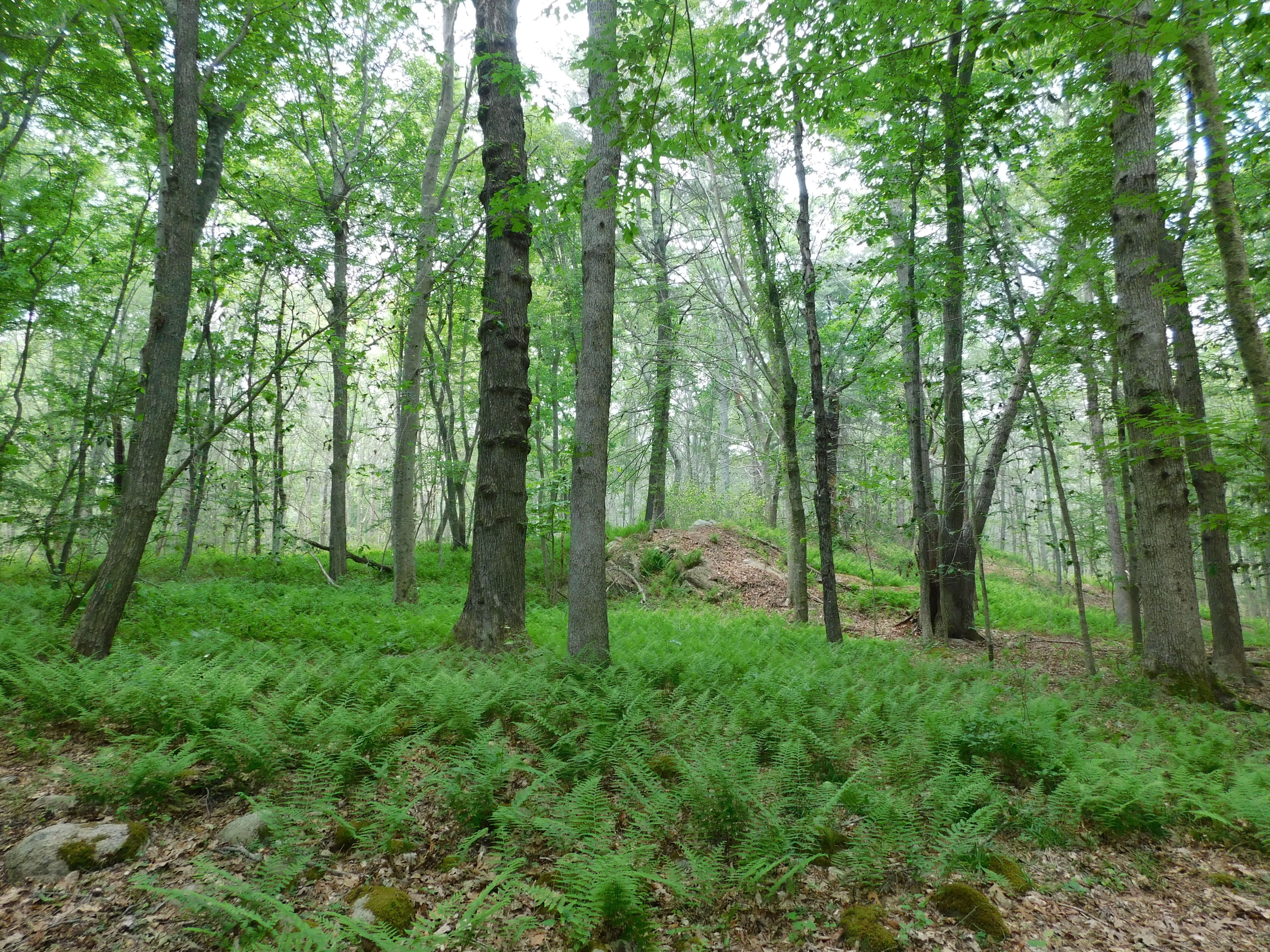
Published January 22, 2024
Audubon Expands Land Protection with 300 Acres of Forest and Wetland Habitat in New Land Acquisitions
Recent Donations of Land in North Kingstown and Coventry, Rhode Island Protect Critical Open Space in the State
Deep in a densely forested 300-acre parcel of land in North Kingstown, Rhode Island lies the headwaters of the Saugatucket River. A mix of tree species, including old American beech, yellow birch, and white pine fill the landscape that also contains valuable wetlands and provides a protected home for native birds and wildlife. Owls, woodpeckers, warblers, and numerous other bird species use the property year-round or on critical migration stop overs, while the wetlands and streams provide breeding grounds for the vulnerable dusky and two-lined salamanders and other aquatic species.
Congdon Wood recently became Audubon’s fourth largest wildlife refuge within the 9,800 acres of property that the organization permanently protects in Rhode Island and nearby Massachusetts. Donated to Audubon by a generous family who wished the land to remain protected from development, the property becomes a major acquisition and hub for what Audubon hopes will be even more protected natural habitats.
Congdon Wood’s proximity to other protected areas creates a conservation greenway, making it even more valuable for birds and wildlife. “The size of this wildlife refuge and the fact that it connects to other protected areas explains the invaluable role it will play in Rhode Island conservation efforts,” explained Audubon Executive Director Jeff Hall. “These large tracts of donated land are few and far between these days, but they leverage Audubon’s ability to improve the ecosystem for birds, wildlife, and people.”
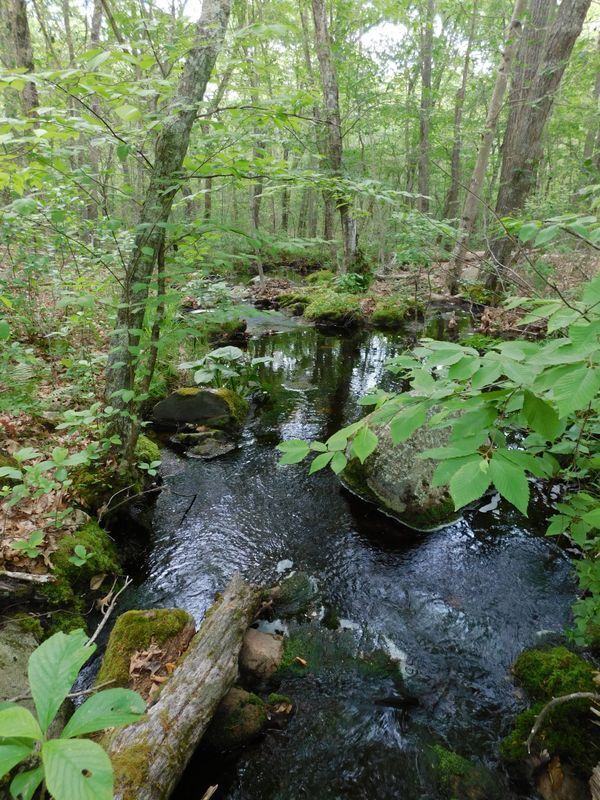
A sizable stretch of the Saugatucket River also lies within the property boundaries, which flows south toward Point Judith Pond and, ultimately, to Block Island Sound. “We know that the portion of the Saugatucket found on this property is very clean and untouched by human development, that’s why native brook trout thrive in these waters,” said Audubon Senior Director of Conservation Scott Ruhren. “From Congdon Wood, clean water is carried south by the river and supports human recreational activities, as well as the marine environment.” The open, undeveloped land that surrounds this river in Congdon Wood also provides flood mitigation, with nature absorbing stormwater and river overflow during intense storms brought on by climate change.
Due to the lack of a public access point, Audubon will use the property for research, to monitor populations of threatened bird species and develop habitat management plans through their Avian Research Initiative. The organization will also engage graduate and undergraduate students on the property in the study of conservation management. “It’s a win-win situation when working with local students,” says Ruhren. “We’re getting significant assistance with fieldwork, monitoring, and other conservation tasks, and in turn they are receiving the training that they’ll need in order to work as scientists in the environmental field.”
In addition to Congdon Wood, Audubon also received a second parcel from a generous donor in Coventry, Rhode Island. The donor’s 5-acre tract enabled Audubon to enlarge its Perched Boulder Woods Wildlife Refuge to 58 acres. When it comes to conservation, every acre counts. “This donation merges seamlessly with a wildlife refuge that Audubon already monitors and protects,” says Ruhren. “The donation is leveraging our abilities to conserve and protect critical wildlife habitat.”
Hall makes it a priority to collaborate with people who are considering donating their land so it will be permanently protected. “Every piece of land has its own story and history to tell through the people donating it, and every acre of land is critical to help Audubon protect the natural biodiversity of the state.”
“While it’s not always clear to the public how much effort and resources are needed to successfully manage wildlife refuges, it’s a significant investment,” Hall explains, “by reaching out to our neighbors and other local groups engaged in land protection, we can hopefully bolster our collective efforts and increase community interest, involvement, and investment in protecting our wild places.”
Read More About Audubon Congdon Wood Wildlife Refuge
Providence Journal | This woodland was once targeted for a solar farm. Now, it's protected by the Audubon Society.
EcoRI News | R.I. Audubon Expands Land Protection With Two New Land Donations
From the Executive Director | A New Year Letter to Audubon Membership

